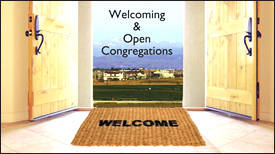Religious communities and individuals feel threatened and sometimes isolated.
Secularists would prefer to keep all religions at arm’s length from our public affairs.
There are people with strong religious beliefs who recognise that our public affairs must reflect the concerns of all citizens no matter what their backgrounds.
Equally, there are secularists who support the right of people to have access to, say, schools that reflect their religious principles should they so wish.
In Ireland today there are at least four issues, all of which made headlines yesterday, where this unresolved conflict is at the root of considerable, ongoing division.
Though it is too early to come to any definitive position on why Savita Halappanavar died in a Galway hospital last October the Health Service Executive has found there was an overemphasis on the welfare of Ms Halappanavar’s unviable foetus and an under-emphasis on her deteriorating health. That she and her husband Praveen were told the pregnancy could not be terminated and that “this was a Catholic country” suggests that one set of religious beliefs had fatal consequences for someone who did not share those beliefs.
The Department of Education has just released details of a survey on school patronage and said that Catholic bishops in 23 areas must, within six months, outline how they will end their patronage of primary schools. This may seem a relatively straightforward process but history suggests it may prove far more difficult to resolve that might be imagined.
Another fault-line issue was raised when the chairman of the Catholic bishops’ Council for Marriage and the Family, Bishop Christopher Jones, reiterated his Church’s opposition to same-sex marriages. To muddy the waters further the Church of Ireland Changing Attitude Ireland group has strongly supported the extension of civil marriage to same-sex couples.
Again this week lobby group Social Justice Ireland published a critique of Government economic policy suggesting that it is creating a fractured society, a weak economy and persistently high unemployment. SJI also warned that Ireland has seen the single biggest transfer of resources in history from low- and middle-income people to the rich and powerful.
A more extreme manifestation of this state-religion conflict was seen on Monday when the Gaza Strip’s Hamas rulers announced it will bar men from teaching at girls’ schools and demand separate classes for boys and girls from the age of nine. The law will apply to all schools in the enclave, including in private, Christian led and United Nations schools.
At one of his very first public functions after his election Pope Francis acknowledged that not everyone shared his beliefs but he still offered them his blessing, encouragement and good wishes. Maybe he has learned one of history’s lessons – that change is inevitable and that you can facilitate it or fight it, but it will come.
It seems that this society, one divided religion and riven by hate for far too long, would be best served by building an inclusive, agreed future rather than sustaining a past now exposed as unsustainable and rejected by so many.


